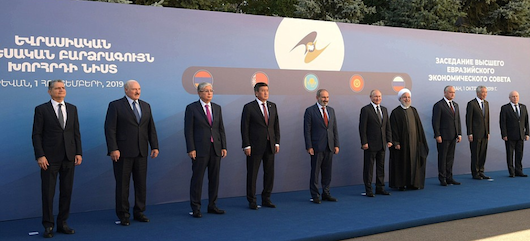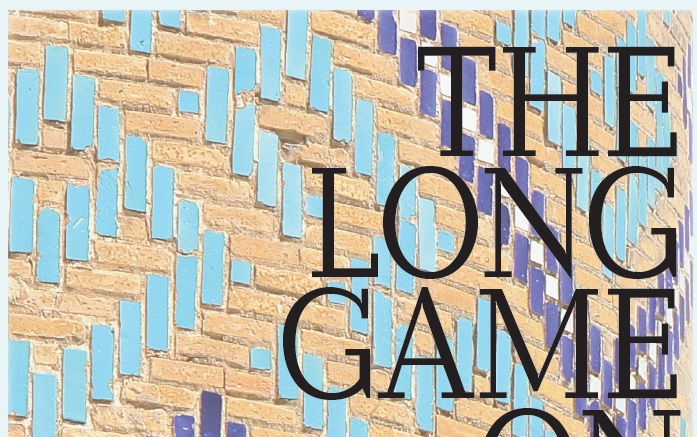e-CAMCA Week 2020
In lieu of our in-person annual gathering, the CAMCA Regional Forum organizers are hosting a virtual e-CAMCA Week.
From June 15th-19th we will be hosting a daily live speaker session or panel, as well as releasing a variety of original content and helpful resources, for our CAMCA Forum community. We’ve pulled together a terrific collection of experts from across sectors, including members of the CAMCA Network, that will be delivering the latest on what you need to know about the region during the COVID-19 crisis and beyond.
Live video events will take place at 10 AM EST daily from June 16th-19th .
TUNE IN HERE to our Facebook page for live video events (full agenda below) and
SUBSCRIBE BELOW to receive the aforementioned release
VIEW THE FULL AGENDA DETAILS HERE


E-CAMCA WEEK PUBLICATIONS
Welcome Letter
Letter from Secretary Donald Rumsfeld
e-CAMCA Week 2020 participants
Meet CAMCA Entrepreneurs
View features of some successful regional entrepreneurs from our CAMCA Network
"Caucasus & Central Asia Post COVID-19" Series- Volume I
Digital Transformation in the CAMCA Region
Post COVID-19: Challeges & Opportunities for the Region

Greater Eurasia: Russia's Asian Fantasy

S. Frederick Starr
Kennan Cable No. 46, January 15, 2020
Is there a grand strategy that informs Russia’s activities abroad and, if so, what is it? For years it seemed that President Putin based his foreign policy mainly on his 2005 statement to the Russian nation that the collapse of the Soviet empire “was the greatest geopolitical catastrophe of the century.” The task of Russian policy was therefore to reclaim by whatever means necessary as much control over former Soviet territories as possible. This led to his seizure of Georgian territory in 2008, his Crimean grab of 2014, and his armed incursions into eastern Ukraine in 2014-2019. More recently, it has led to his forcing Kyrgyzstan to join his politics-driven Eurasian Economic Union and his current bullying of Uzbekistan and Tajikistan to follow suit.
In practice, Russia’s foreign moves in places as diverse as Eastern Europe, Syria, and Africa seem to be guided more by opportunism than strategy. This has not sat well with some members of Moscow’s policy-oriented intelligentsia. Modern Russia, after all, is heir to a half millennium of messianic ideologies that justified and encouraged the expansion of territories under Moscow’s rule. Whether building the Third Rome, destroying the Tatars, placing the Cross of St. Vladimir atop the Hagia Sofia in Constantinople, building a Holy Alliance against future Napoleons, protecting Europe against revolution in 1848, conquering Muslim Central Asia in the 1860s, or aspiring to Sovietize Eastern Europe under Stalin, ideas, not mere opportunism, have driven Russia’s actions abroad. Even as Putin repeated his assertion about the collapse of the USSR, a deficit of theory was forming in Moscow’s foreign policy circles.
Image via Kennan Cable No. 46: Greater Eurasia: Russia's Asian Fantasy
CACI Forum and Full Recording: The Xinjiang Crisis and the Rest of Central Asia: Impacts and Responses
The Xinjiang Crisis and the Rest of Central Asia: Impacts and Responses
The Uyghurs of Xinjiang constitute one of the oldest Turkic peoples and the first to be urbanized and to develop a written language and rich intellectual life. As such they are, in a historic and cultural sense, part of Central Asia. The forum discussed how the ongoing crisis in Xinjiang affected Uyghurs, the Central Asian countries, and how Afghanistan, Kazakhstan, Kyrgyzstan, Tajikistan, Turkmenistan and Uzbekistan responded?
Speakers:
Sean R. Roberts, Associate Professor, George Washington University
James Clad, Director, Asian Security Program, American Foreign Policy Council
Ilshat Hassan, President, Uyghur American Association
Moderator: S. Frederick Starr, Chairman, Central Asia-Caucasus Institute at AFPC
Where: Middle East Institute: 1319 18th Street NW, 20036
When: Tuesday, March 26, 2019 from 12:00 - 2:00 pm,
Scroll Down for the Full Recording
S. Frederick Starr Testifies at House Subcommittee Hearing on "Current Developments in Central Asia"
The Long Game on the Silk Road: US and EU Strategy for Central Asia and the Caucasus







